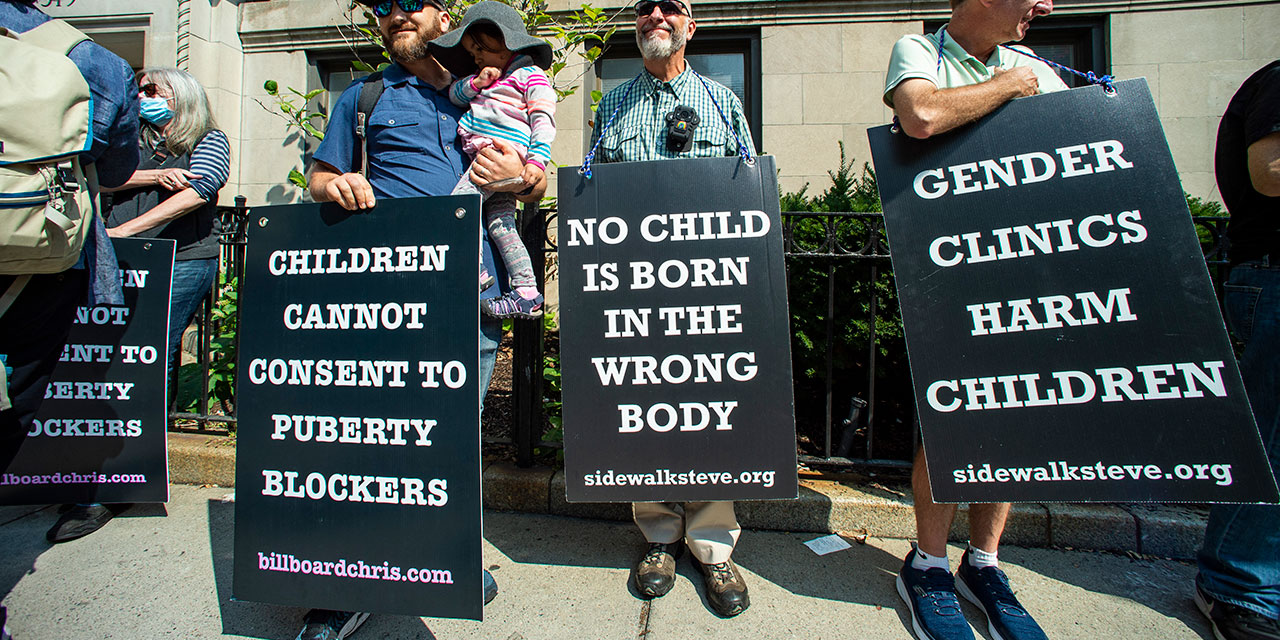Former president Donald Trump recently revived a pledge to repeal and replace the Affordable Care Act, noting on Truth Social: “The cost of Obamacare is out of control, plus, it’s not good Healthcare.” He declared that he was “seriously looking at alternatives” and urged Republicans: “never give up.”
Though the health-care debate has died down after a decade of controversy, families today remain saddled with rising insurance costs. Those costs will become a pressing political issue after President Joe Biden’s Obamacare-patching subsidies expire at the end of 2025. The next administration will have both the obligation and the opportunity to fix the dysfunction of the individual health-insurance market.
President Barack Obama signed the Affordable Care Act into law on March 23, 2010. The legislation’s centerpiece was its requirement that health insurers cover individuals with major preexisting conditions on the same terms as enrollees who signed up before they got sick. When this provision went into effect in 2014, enrollees’ average medical-care costs rose, forcing insurers to hike premiums. This led healthy individuals to drop their insurance, further pushing up the remaining enrollees’ cost of coverage—a destructive cycle that made buying and offering health insurance increasingly unattractive to individuals and insurers alike. From 2013 to 2017, premiums for the insured who purchased their coverage on the individual market rose by 105 percent. Government subsidies for low-income enrollees prevented the market from collapsing entirely but also increased the number of subsidized individuals; the ranks of the unsubsidized plummeted from 9 million in 2015 to 5 million in 2018.
Trump’s 2016 election was fueled in part by voters’ dissatisfaction with Obamacare. Congressional Republicans, however, never came close to crafting filibuster-proof reforms to change the ACA’s core insurance-market regulations. While the Trump administration implemented several modest reforms, it fell well short of its promise to replace Obamacare with “something terrific.”
When President Biden and congressional Democrats took power in 2021, they threw money at the problem instead of fixing the ACA’s dysfunctional insurance-market rules. Biden signed legislation that year expanding federal-aid eligibility to some individuals with incomes approaching $600,000. While subsidy expansion put the Obamacare controversy on hold, the debate will surely reignite after this law expires.
Since ACA subsidies are set to fall back to their original levels and can be reformed by a simple congressional majority via the budget-reconciliation process, Republicans will have vital leverage with which to extract broader reforms. In return for continuing the flow of funds, Republicans should demand changes to insurance-pricing rules. Specifically, they should insist that insurers be allowed to offer discounted premiums to individuals who sign up before they get sick, so long as they subsequently maintain continuous coverage.
Such a shift would not only reduce the cost of insurance for those purchasing plans but also encourage more people to enroll while healthy and lock in lower premiums before eventually falling ill. Coupling this reform with the provision of robust subsidies would enable Congress to uphold the ACA’s guarantee of aid to the poor and those with preexisting conditions, while ensuring that people who want to pay their own way can do so at a fair price.
Photo: erdikocak/iStock





